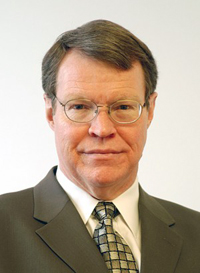Guest Editorial
AUGUST 15, 2012 | BY MERRILL MATTHEWS
The Environmentalists' Misguided Plan to Repeal and Replace' Fossil Fuels
 The Republican slogan for what to do about President Obama's health care reform is "repeal and replace." Similarly, environmentalists have long engaged in their own repeal-and-replace effort.
The Republican slogan for what to do about President Obama's health care reform is "repeal and replace." Similarly, environmentalists have long engaged in their own repeal-and-replace effort.
They want to "repeal" traditional energy sources - coal, oil and natural gas, which are abundant and economical - and replace them with so-called green energy sources, such as solar and wind power and biofuels.
But exactly how realistic is the environmentalists' vision? At least for the next quarter-century, not realistic at all.
According to the federal government's Energy Information Administration, oil, natural gas and coal were responsible for 83 percent of U.S. energy consumption in 2010. Nuclear power accounted for 9 percent.
Biofuels made up 1 percent and all other renewable sources represented 7 percent, for a renewable energy total of 8 percent - not much with which to build a dynamic, competitive economy.
But at least green energy sources will grow, right? Probably, but not by much. The Energy Information Administration estimates that by 2035, biofuels will provide 4 percent of U.S. energy consumption and renewable sources like solar and wind will make up 11 percent - for a total of 15 percent.
These estimates, meanwhile, come from the same administration that thought we would have 1 million electric cars on U.S. roads by 2015. Thus there is reason to doubt whether we will come anywhere near those Energy Information Administration projections by 2035.
Let's see why.
- Solar Power: Solar is the clean-energy darling. On the positive side, the solar industry predicts that the U.S. will install about twice as many solar panels this year as in 2011. Prices have been declining rapidly, thanks largely to an explosion of Chinese-made panels.
There's trouble ahead, though. The Obama administration says the Chinese are dumping cheap solar panels in the U.S. market and has slapped on new tariffs ranging as high as 250 percent, according to a Wall Street Journal report.
Never mind the political embarrassment for an administration that has poured billions of tax dollars into subsidizing our own solar industry, often with disastrous results like the Solyndra bankruptcy. Increasing the price of Chinese-made panels will depress the solar-power expansion the Obama administration is depending on.
- Wind Power: If you are driving in places like West Texas, you will likely encounter a convoy of trucks hauling massive wind turbines to their destination. But take a closer look and you'll notice they always seem to be heading in the opposite direction of the nearest urban area.
Most people don't like seeing or hearing those huge wind turbines. The not-in-my-backyard problem for wind power is especially acute.
Then there's the inefficiency. Because the wind doesn't always blow, the turbines produce only about 20 percent of the energy they could if they were able to operate 24/7. During calm intervals, the power companies have to turn to more reliable sources - traditional fossil fuels.
Plus, the wind turbines have become a bird-killing nightmare. The U.S. Fish and Wildlife Service estimates that wind turbines kill about half a million birds a year, including raptors like eagles. That carnage is another, albeit indirect, cost of this as yet inefficient and expensive energy.
- Biofuels: Congress has mandated the use of corn-based ethanol as an additive to gasoline for years. Ethanol was supposed to be cleaner than fossil fuels. But then we learned that producing ethanol requires a lot more water, which is often in short supply. Plus it takes fossil fuels to harvest and transport it.
Oh, and using so much corn for fuel drove up demand and therefore the price, which made it unaffordable for millions of poor people in countries that depend on corn products, like Mexico.
In order to find another source, President George W. Bush, along with a Democratic Congress, decided to mandate the use of cellulosic fuel such as from switchgrass - 500 million barrels by 2012. But then the central planners discovered that the industry simply couldn't meet any of its goals, even with billions of taxpayer dollars in subsidies.
The day may come when we can transition to clean energy, but not for decades. Until there is a real "replace" vision, environmentalists should quit trying to "repeal" fossil fuels, which are cheap and abundant, create real high-paying (non-subsidized) jobs, and are getting cleaner all the time.
Merrill Matthews is a resident scholar with the Institute for Policy Innovation in Dallas, Texas.



